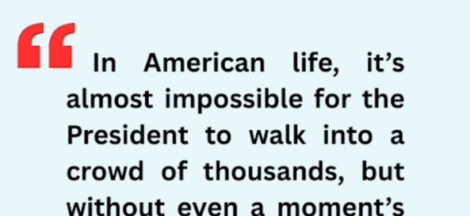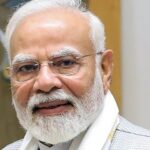The Modi government has launched a significant international diplomacy effort to seek support from the global community in the fight against Pak-sponsored terrorism. Seven all-party delegations have been sent to major international capitals this week.
New Delhi launched ‘Operation Sindoor’ following a terrorist attack by militants linked to Pakistan in Pahalgam on April 22. It saw the death of 26 civilians. This marked the worst assault on civilians since the 26/11 Mumbai attacks.
New Delhi is working on diplomatic efforts regarding the Pahalgam attack and New Delhi’s retaliation. However, the international response has been mixed. The U.S., Japan, the UAE, and the UN have called for restraint and dialogue, while Israel supports New Delhi. China has condemned the strikes and urged both sides to stay calm.
Citing Pakistan’s role in fostering terrorism, New Delhi asserts that de-escalation must come from Pakistan. While Pakistan adopts a victim narrative, New Delhi will vigorously attack its involvement in terrorism. Delegations will highlight global double standards on terrorism, emphasizing the need to combat it.
The all-party delegations of MPs are a good strategy to inform and seek support from the global community. Notable MPs chosen include Shashi Tharoor and Anand Sharma (Congress), Baijayant Panda and Ravi Shankar Prasad (BJP), Sanjay Kumar Jha (JDU), Shrikant Eknath Shinde (Shiv Sena), Kanimozhi (DMK), and Supriya Sule (NCP) among others. The delegation members will engage with various stakeholders, including political leaders and intellectuals. They are articulate and well-prepared to perform their roles. They will engage with many people, including political leaders and intellectuals.
The delegations are scheduled to visit 33 countries. There are 31 political leaders from the ruling National Democratic Alliance (NDA) and 20 from other parties in the delegations. They will be assisted by former diplomats. Their mission embraces the message of the “One Message, One Nation, One Bharat” campaign. The goal is to present a unified stance against Pakistan-sponsored terrorism.
This united effort, where the BJP, Opposition and Muslim communities speak in one voice about zero tolerance of terrorism, not only strengthens New Deli’s commitment but also
reassures the global community of India’s resolve.
“Modi’s mind is cool, it remains cool, but Modi’s blood is hot, and now it is not blood but hot sindoor (vermilion) flowing in Modi’s veins. Now, India has made it clear that Pakistan will have to pay a heavy price for every terrorist attack. And this price will be paid by Pakistan’s army and Pakistan’s economy,” Prime Minister Narendra Modi declared in Rajasthan on May 21.
This is not the first time the government has taken the Opposition on board on foreign policy issues. Former Prime Ministers P.V. Narasimha Rao ( Congress), A.B. Vajpayee ( BJP) and Dr Manmohan Singh had previously sent such delegations. Rao believed that appointing a prominent opposition leader to head the Indian delegation had a significant impact.
Despite the government and the Opposition not being on the same page on many issues, when the government invited the Opposition to join the global outreach efforts, this time, the response was favourable.
The Modi government aims to reduce criticism of its ‘Operation Sindoor’ by involving Opposition Members of Parliament (MPs) in international diplomatic efforts. The primary goal is to present a united front against terrorism. This move of the BJP is a welcome step for democracy as it will strengthen India’s position in a multipolar world. Incorporating diverse opinions is a positive step for India’s diplomatic efforts.
According to The Wire, a CPI(M) MP from Kerala, John Brittas, stated, “Our participation shows that the Opposition plays an integral role in our democracy.” Asaduddin Owaisi from AIMIM added, “We’re not supporting the government; we’re supporting the country against terrorism from Pakistan.”
Another important thing is that despite the BJP’s exclusion of Muslims from policy decisions and also the global concerns of minority rights in India, the inclusion of Muslim MP shows a strategic shift. Of the 59 members, ten are Muslim. The Modi government now projects a plural voice with more political weight on a foreign policy initiative.
Undoubtedly, the Foreign Ministry will assess the impact of the outreach delegations; even after their return, New Delhi must continue its efforts and prioritize key areas. It will enhance the effectiveness of diplomatic support. Also, the messaging should be more targeted and sharp.
Overall, sending all-party delegations to address this crucial issue is commendable. New Delhi is committed to the fight against terrorism, both domestically and internationally. What Modi is doing is advancing India’s goals in this area. The Modi government collaborates with other nations to promote a zero-tolerance policy. It supports efforts to address the root causes of terrorism. (IPA Service)

 Narendra Modi Govt Has Nothing To Boast About India Being Fourth Largest Economy
Narendra Modi Govt Has Nothing To Boast About India Being Fourth Largest Economy 